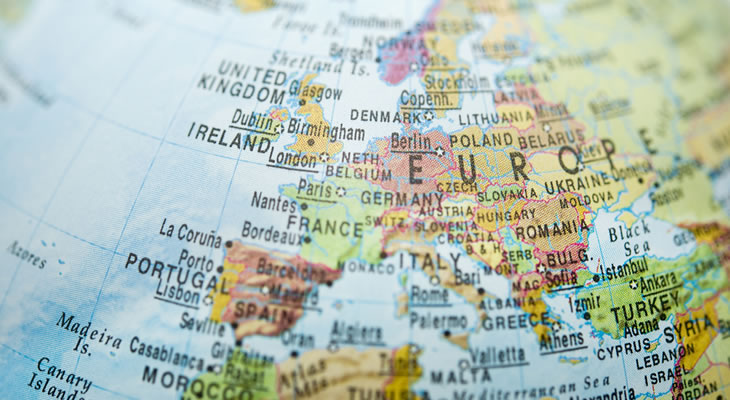The Euro to Pound Sterling (EUR/GBP) exchange rate was trending lower on Tuesday as negotiations between Greece and its creditors appeared to be heading south and the Eurozone core Consumer Price Index fell from 0.7% to 0.6%.
It’s been a big day for the Eurozone today regardless of Greek negotiations; initially, the German Unemployment Rate sank from a seasonally adjusted 6.5% to 6.4% in March while Unemployment Change came in at -15K.
Eurozone unemployment at 11.3% in February:
Greece: 26.0%
Spain: 23.2%
Italy: 12.7%
France: 11.6%
Germany: 4.8%
http://t.co/llSUmcTYDe
— Markit Economics (@MarkitEconomics) March 31, 2015
However, the Italian Unemployment Rate took a surprising rise higher from 12.6% to 12.7% in February.
Then the Eurozone Unemployment Rate fell to its lowest level since May 2012 at 11.3% from 11.4%, but the figure disappointed economists’ forecasts of 11.2%.
The last piece of data for the Eurozone came in the form of Eurozone Consumer Price Index ecostats which failed to impress again. Eurozone core inflation fell from 0.7% in February to 0.6% in March—a surprising development when economists had predicted stagnation.
Pound Sterling to Euro (GBP/EUR) Exchange Rate Advances on Strong UK Data
Meanwhile, the UK economy put on a mixed performance on Tuesday which began with GfK’s Consumer Confidence Survey rising from 1 to 4 in March. Economists had forecast a much smaller jump to 2 and the upbeat ecostat managed to register a 12-year high.
The UK general election is expected to cause major fluctuations in the next few months and therefore sentiment could decline. However, some economists believe that confidence in the Conservative government could help to bolster the UK economy as March’s index was recorded just before Chancellor George Osborne’s final budget statement ahead of the election.
GfK’s representative Nick Moon stated: ‘If people warm to it over the next few weeks then we may well see a further increase in the index next month. A consistently rising index in the run-up to the election is likely to be good news for the government.’
Following the confidence data, UK Gross Domestic Product (GDP) ecostats were released, which showed growth jumping from initial flash forecasts of 2.7% YoY in quarter four to 3.0%.
Economic expert Andrew Sentance commented: ‘It’s not surprising to see GDP being revised up for Q4 and for 2014 as a whole. A whole raft of other data points to a strong year for the British economy – including business surveys, car sales, retail sales and falling unemployment.’
However, one ecostat that weighed on UK economic optimism was Britain’s current account deficit. The Current Account figure softened, but less than the -22.0B forecast, to -25.3B in Q4 after Q3’s -27.7B.
Furthermore, 2014 saw the deficit widen to 5.5% of GDP—the largest annual figure since the first recording in 1948.
Euro to Pound Sterling (EUR/GBP) Exchange Rate Forecast
With no further data for the Eurozone or the UK left for release on Tuesday, the Euro to Pound Sterling (EUR/GBP) exchange rate is likely to fluctuate on the earlier data releases as well as any developments in negotiations between Greece and its creditors.
Wednesday will be a little quieter for the GBP/EUR currency pair with only the UK’s Markit Manufacturing Purchasing Managers Index (PMI) out for release.
The Euro to Pound Sterling (EUR/GBP) exchange rate is trading at 0.7264. The Pound Sterling to Euro (GBP/EUR) exchange rate is trending in the region of 1.3769.

